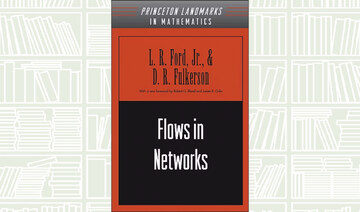American screenwriter, director, journalist and celebrated author Nora Ephron has perhaps been the source of some of the most humorous and humanizing narratives from a woman’s perspective in recent decades.
In her 2006 book, “I Feel Bad About My Neck: And Other Thoughts on Being a Woman,” she uses her usual relatable anecdotes to describe the merging landscape of her aging body.
She describes our bodies as “one big ball of wax” and argues that if you decide to go to a plastic surgeon to iron out your neck, you’ll have to have a facelift.
“According to my dermatologist, the neck starts to go at 43, and that’s that,” she writes matter-of-factly. The neck is where everything starts and ends.
The book’s tone is light-hearted yet poignant, encouraging readers to laugh at life’s inevitable changes as they see them in the mirror while appreciating the wrinkled moments along the way.
“The neck is a dead giveaway. Our faces are lies, and our necks are the truth. You have to cut open a redwood tree to see how old it is, but you wouldn’t have to if it had a neck,” she writes.
The book uses the neck as an anchor that turns the head and connects it to the rest of the body, literally and figuratively.
Ephron first gained prominence as a journalist in the 1960s, writing for publications like Esquire. As a California-raised-turned-New Yorker, she became known for her candid and humorous takes on the adventures and misadventures of everyday life. Even something as mundane as clearing out her purse somehow became an exploration of self-discovery and a deep take on society.
Ephron transitioned to screenwriting, following in the footsteps of both her parents. She found major success with hits including “When Harry Met Sally” (1989), “Sleepless in Seattle” (1993), “You’ve Got Mail” (1998), and, of course, “Julie & Julia,” her final directorial masterpiece before she died in 2012. This intertwined two true stories — the life of iconic cook Julia Child (played by Meryl Streep) and that of Julie Powell (played by Amy Adams), a writer who blogs about her attempts to cook and write about all 524 recipes in Child’s “Mastering the Art of French Cooking” in 365 days.
In “I Feel Bad About My Neck,” Ephron reflects on the physical changes that come with getting older in her signature honest, humorous style and also look at the joys and frustrations of parenting, relationships, getting older and shedding the skin of youth.
It’s a book that stands the test of time. In fact, you could say it ages better than our necks.
























